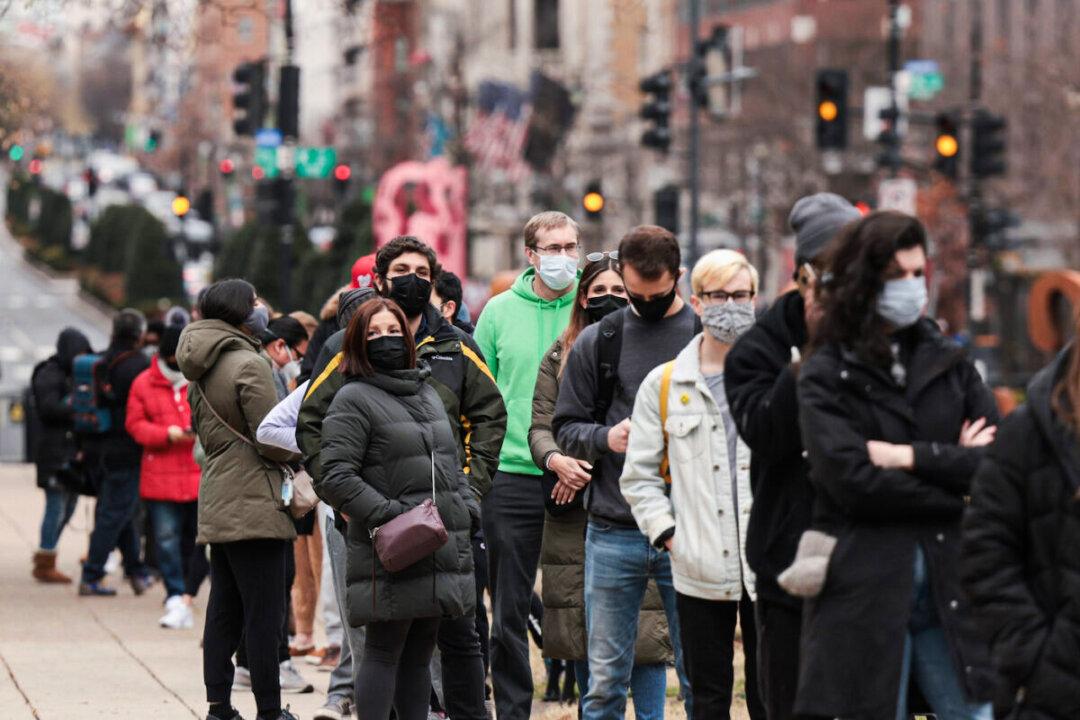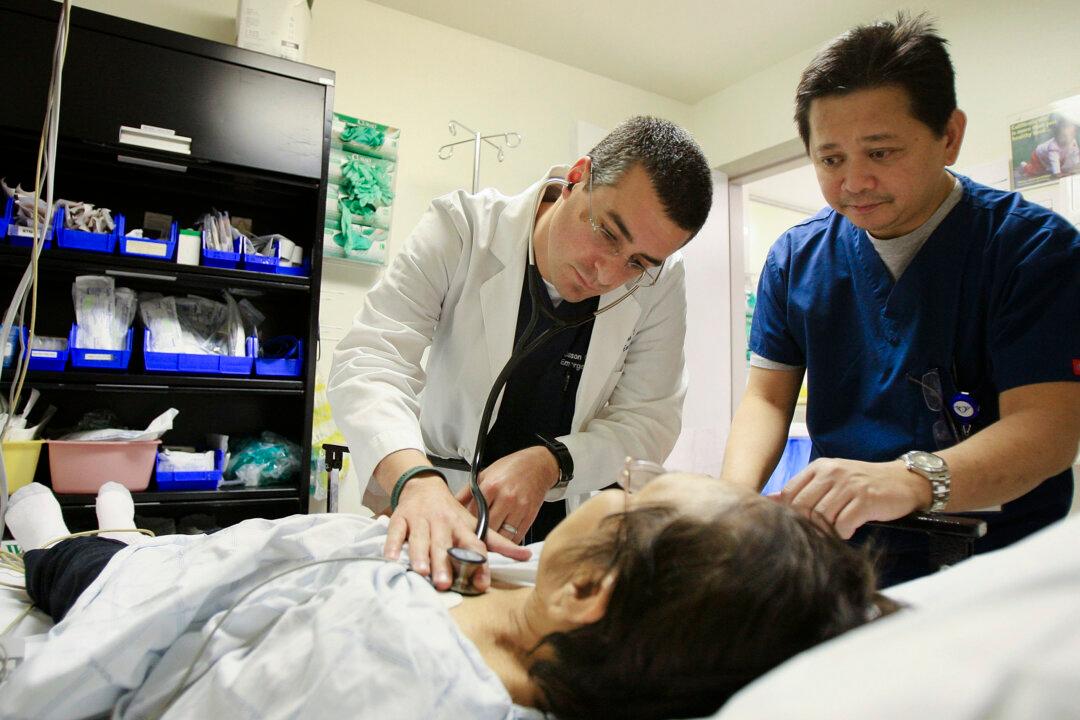Worldwide cases of COVID-19 “increased sharply” in the past week but the overall number of deaths dropped, said the World Health Organization (WHO) in its weekly epidemiological update on Thursday.
Between Dec. 27, 2021, and Jan. 2, 2022, the number of cases increased by 71 percent compared to the previous week, according to the U.N. health agency. The number of deaths dropped by 10 percent worldwide, WHO said.





